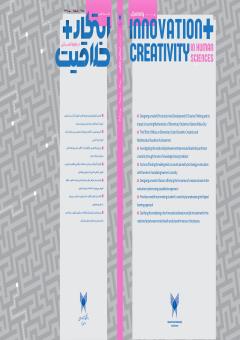Factors affecting the willingness to use virtual reality technology in education with the role of modulating learners' curiosity
Subject Areas : Creativity and innovation from psychological, epistemological, educational and pedagogical
Alireza Nazemibidgoli
1
![]() ,
Zahra Sadeqiarani
2
,
Zahra Sadeqiarani
2
![]()
1 - PhD student, Sports Management, Collage of Farabi, University of Tehran, Iran
2 - استادیار، گروه مدیریت و کارآفرینی، دانشگاه کاشان، کاشان، ایران
Keywords: Virtual reality, unified theory of acceptance and use of technology (UTAUT), creative technologies, Consumer innovativeness.,
Abstract :
Abstract: Context: Many countries are leveraging new technologies to enhance the educational experience of the younger generation. The acceptance of these technologies by learners is crucial for the success and advancement of educational institutions. Innovations like virtual reality can enhance the quality of education and facilitate more interactive learning environments. Understanding the factors that influence the acceptance of these technologies and creating conducive conditions for their effective utilization are imperative. Purpose: The purpose of this article is to explore the factors that influence the willingness to use virtual reality technology in education and the moderating role of learners' innovativeness in this process. Method: The current research is of an applied-descriptive type, and an available sampling method was used. The research model was examined through an online questionnaire, and data analysis and hypothesis testing were conducted using structural equation modeling with WarpPLS version 3 software. Finding: Despite novelty not being included in the integrated theory model of technology acceptance and use, its impact as a vital predictor for new product acceptance was observed on expected performance, expected effort, social influence, facilitating conditions, and attitude towards use. Conclusion: As a result, the current research indicates that virtual reality technology, as an effective innovation in education, can enhance deeper and more effective learning by fostering interactive and immersive educational environments. Despite certain drawbacks such as high costs and diminishing interpersonal interactions, virtual reality can provide significant value in enhancing the quality of education, fostering collaborative learning, and offering universal access to educational resources. This study proposes that by establishing suitable infrastructure and cultivating positive expectations through training and technical support, the productivity and effectiveness of this technology in the realm of education can be enhanced.


